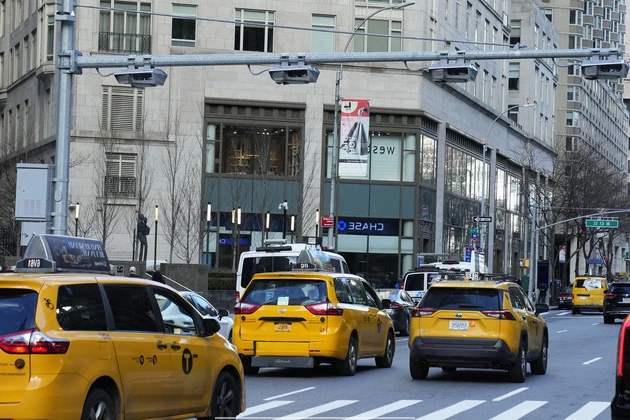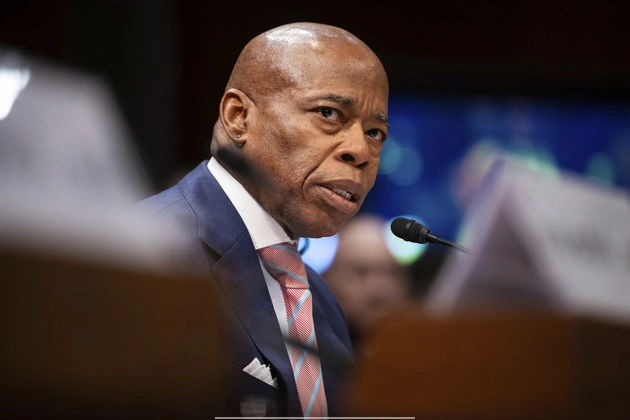
Trump Considers Rescinding Controversial Manhattan Toll: What You Need to Know
President Donald Trump is currently weighing the possibility of withdrawing federal backing for a contentious New York City toll initiative, a move that could bring it to a halt as reported by sources familiar with the discussions.
The Department of Transportation dialogues, initially covered by The New York Times, may potentially derail a $9 toll program that commenced on January 5, stirring strong emotions among both proponents and opponents. Trump has vehemently criticized the “congestion pricing” program in his hometown of New York City and vowed during his campaign to terminate it.
Democratic Governor Kathy Hochul and Trump recently engaged in discussions concerning the toll program, although no final decision has been reached, according to insiders who requested anonymity to disclose details of the private talks. The moderate Democratic governor and the president are anticipated to reconnect next week.
New York officials are aiming to utilize the estimated $1 billion in toll revenues from drivers entering Manhattan below 60th Street to secure $15 billion for enhancing the region’s ailing mass transit system.
Hochul initially paused the program prior to its implementation last June due to concerns that tolls could negatively impact Democratic candidates in closely contested New York House races. Following the election, she revived the toll plan and announced a reduced fee from $15 to $9.
If approval for congestion pricing is revoked, it is likely to result in legal action from state authorities and raise uncertainties regarding the Metropolitan Transportation Authority’s ability to upgrade its deteriorating infrastructure. Republican lawmakers have discussed tying federal assistance for the MTA to a requirement for a forensic audit of the authority.
“America’s economy relies on New York City, and New York City relies on public transit — that’s why Governor Hochul will always advocate for funding the commuter rail, subways, and buses that drive the economic growth of the greatest city in the world,” stated Hochul spokesperson Avi Small.
A White House spokesperson declined to provide any comments.
An administrative move to halt the toll program by Trump would be seen as a victory for New York House Republicans who have urged the president to terminate it without waiting for the resolution of a lawsuit backed by New Jersey.
“He’s indicated to us that he wants to address it,” mentioned Rep. Nicole Malliotakis. “I wouldn’t be surprised if something happens soon. This is a priority for him, and he has placed it at the top of his Department of Transportation agenda.”
The debate over restricting traffic in Manhattan’s business district has been ongoing in New York for decades. Despite facing numerous legal challenges, the program was finally implemented this month. MTA officials had hoped that critics, including Trump, would eventually acknowledge the program’s stated benefits. Recent observations by transit officials have highlighted reduced traffic as evidence that the tolls are functioning as intended.
New Jersey Governor Phil Murphy has sought to leverage his shared opposition to congestion pricing with Trump. On the day of his inauguration, the Democratic governor sent a letter to the Republican president expressing their mutual disapproval of the tolls.
Randy Mastro, an attorney representing Murphy, suggested that the federal government might reconsider its previous approval, especially since a judge has requested federal transportation officials to reevaluate the tolling program.
This juncture presents an opportunity for contemplation, reassessment, and potential modifications on the part of the federal government,” remarked Mastro.















